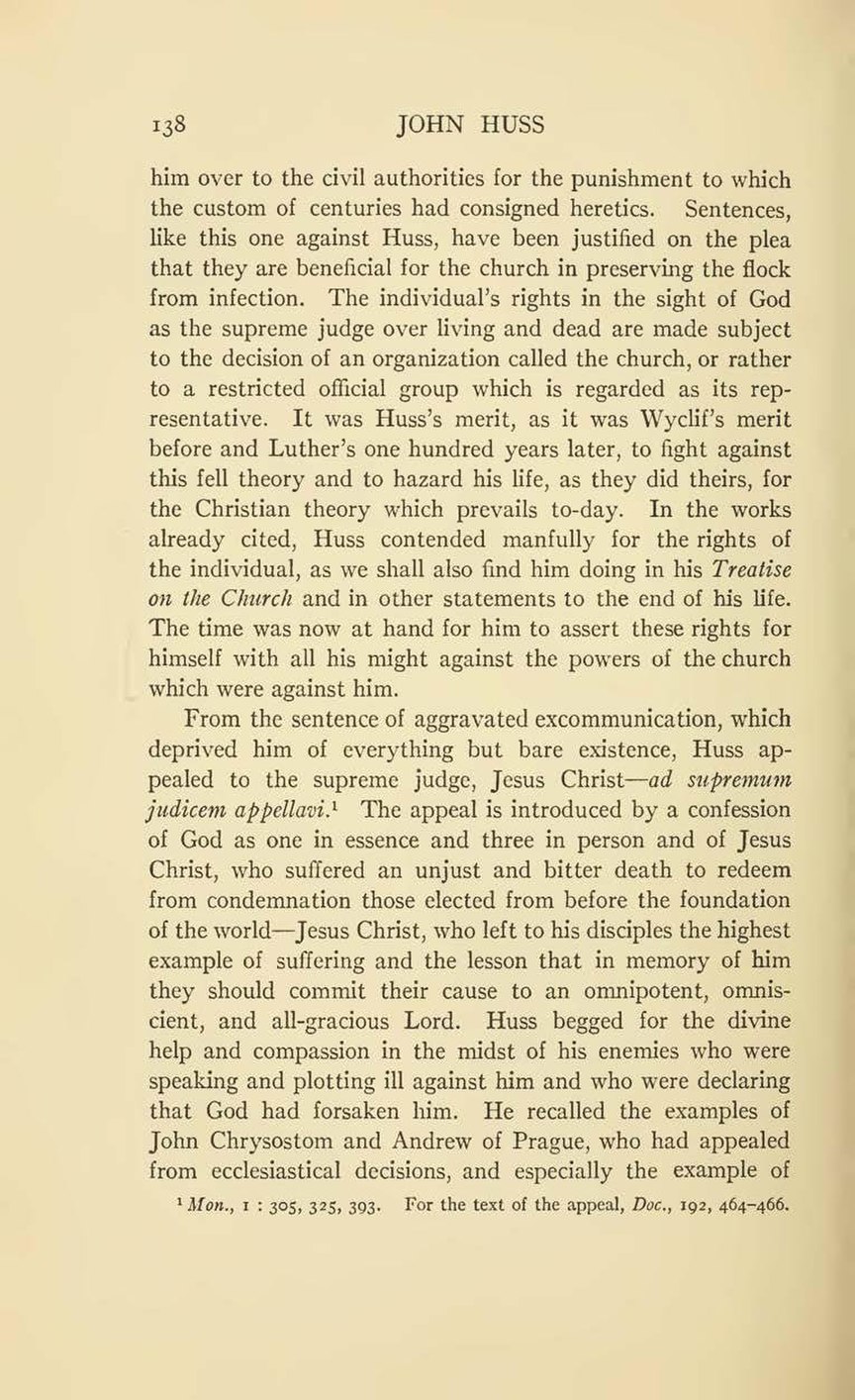him over to the civil authorities for the punishment to which the custom of centuries had consigned heretics. Sentences, like this one against Huss, have been justified on the plea that they are beneficial for the church in preserving the flock from infection. The individual’s rights in the sight of God as the supreme judge over living and dead are made subject to the decision of an organization called the church, or rather to a restricted official group which is regarded as its representative. It was Huss’s merit, as it was Wyclif’s merit before and Luther’s one hundred years later, to fight against this fell theory and to hazard his life, as they did theirs, for the Christian theory which prevails to-day. In the works already cited, Huss contended manfully for the rights of the individual, as we shall also find him doing in his Treatise on the Church and in other statements to the end of his life. The time was now at hand for him to assert these rights for himself with all his might against the powers of the church which were against him.
From the sentence of aggravated excommunication, which deprived him of everything but bare existence, Huss appealed to the supreme judge, Jesus Christ—ad supremum judicem appellavi.[1] The appeal is introduced by a confession of God as one in essence and three in person and of Jesus Christ, who suffered an unjust and bitter death to redeem from condemnation those elected from before the foundation of the world—Jesus Christ, who left to his disciples the highest example of suffering and the lesson that in memory of him they should commit their cause to an omnipotent, omniscient, and all-gracious Lord. Huss begged for the divine help and compassion in the midst of his enemies who were speaking and plotting ill against him and who were declaring that God had forsaken him. He recalled the examples of John Chrysostom and Andrew of Prague, who had appealed from ecclesiastical decisions, and especially the example of
- ↑ Mon., 1: 305, 325, 393. For the text of the appeal, Doc., 192, 464–466.
